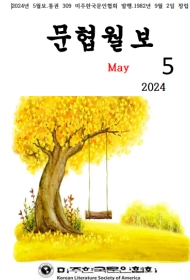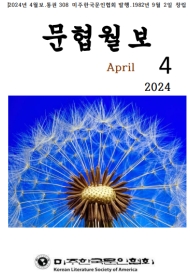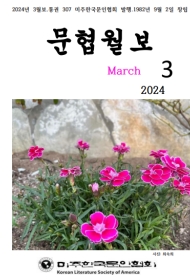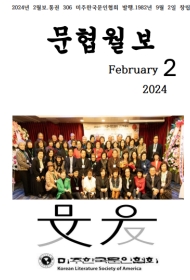Twelve Angry Men
Wolran Kim, July 2010
Rhetorical Analysis Writing
A youth of eighteen prosecuted for murdering his father. Twelve jurors walk into the jury chamber for a unanimous decision between guilty or not guilty with certain evidence, to pass a death sentence. Like a logo on the movie poster "Life is in their hands--Death is on their minds", the truth which complies with their bareness will decide the life or death of the boy (Fonda). Director Sidney Lumet said, “Different lenses will tell a story differently.” The American education system which has a free discussion culture is connecting to even the jury system of the judicial regime. Civic ethics come from these things in harmony: logic and rationality, reason and manners, counterargument and controversy, practical sense and laws. America, a multiracial nation, has history of racial discrimination but the jury system is one of good example of commensalism ever since the foundation of the country. Modern Hollywood judicial movies produce impressions often through a superhero lawyer and illegal traders and triumph of justice is always dramatic. Twelve Angry Men is full of suggestion and feels like walking around in my bare feet in the human's mind field. Therefore, one intent of this paper is to examine the personal prejudices found in jury deliberations and how they impact the decision process.
The twelve jurous are a miniature of our society and a sample of all people. It will be enough to distinguish between twelve categories of the human mind. The pillars of a courthouse as opening scene is a metaphor of state authority's penis and the Puerto Rican nationality of the accused is a symbol of realistic obstacles as a economic colony to America (Oldtheater). Also the jury structure shows us phases of 1950s that denounced females, blacks, and the races of color.
The scene where the jury moves to the locked room overlaps with the accused boy's big eyeballs, the boy's pleading which cannot tell compressed to one scene. The young boy as a criminal suspect is pathos. Everything is depending on them. The jury room is just like Congress of liberalism. The external tributaries of jurymen have diverse occupations, races, generations, and wealth. We can see ethos and their identities: McCarthyism advocate, haughty stockbroker, enterpriser in person, Jew from a slum, laborer who is descendant of the southern European emigrant, imprudent baseball buff, salesman, old doctor, employee of advertising company. Their sense of values and experiences are interesting too: fiery character with terrible bias, buck passer, cold-hearted person who never thinks deeply, literal-minded person who shall never concede an inch of error, person who achieved success in a slum, laborer who always does as told. Their backgrounds and senses of values are revealed plainly through their changes in mental state (All Movie Media LLC, Rovi Corporation).
The witnesses are an old man who heard the boy's voice say, "I'll kill you", and the woman who saw the boy stabbing his father through the window from across the apartment. The boy's protest which doesn't have any persuasive alibi is disregarded and the jury straight put to the vote without any reconsideration. But one juror, #8 who is sitting in the corner, has doubts about his guilt and said, we can't send him to an electric chair after just five minutes. This is the moment that logical criterion raises its head.
He persuades other jurors who shall never cede with sharp analysis, putting a professional lawyer in general court to shame. He violates the court rule that jurors can't collect any evidence except prosecuting attorney or lawyer indicated, to prove the boy's innocence. This is a revolution outside the law, and he is a standard of logos. The filmmaker show us how one man of reason changes people’s errors. He never is awkward and clumsy, and maintains neutrality, but he investigates any overlooking mistakes with a thoroughgoing attitude. He seeks for the old man's testimony using a sectioned drawing of the place of incident by a question of timing and turns over the woman's evidence using common sense. All other jurors who were cold at the beginning gradually share his feelings and start to bring up several commonsense views. Ultimately, jurors #3 and #10 recognize their baseless inferences and assume the boy's innocence.
The angle of the stab from the jackknife considering the victim's and offender's height, reliability of the disabled old man's witness, and the woman's word who’s living right by a railroad are reconsidered one by one again. Those who broke down their convictions their selves and admit their mistakes and misjudgment show us how much our life is stained with fallacies and biases. Juror #4, who is a studious and methodical person, never believed the boy's alibi because he didn't remember even a movie's title which he said he had watched, but he couldn't remember pieces of movie's information which he watched several days before either, so finally he threw up his hand.
Juror #3, who had his own way to the last with complete intolerance, his estrangement was from enmity to his own teenaged son. This fact tells us that many truths are covered by our preconception and prejudice. He even said "I'll kill you" when he received stimulation sensitively about his son, and he was the person who said "guilty" because the boy said exactly the same words. People often use double rules according their necessities and judge others. People are afraid of walking out of their experiences.
Common stereotypes are part of ethos too. All old people want attention. All people who wear glasses sleep without glasses. Those particular assumptions couldn't eliminate the facts. Even if there is a defect of general fallacy, we have to save justice which could bury the accused. Ordinary people defend and pursue and truth through their debates and discussions, and that is one of idealization of absence of authority. Juror #8’s conversation was a work of art. Each and every character's despair and pain at reaching a rational oneness were figures of all humans living between all different sorts of decisions. During intense controversy, juror #6 talked to #8 in the bathroom, "Nice bunch of guys, huh?", and #8 answered "They are about the same as anyone else." How often can't we classify between 'different' and 'wrong', and how many times are we afraid of taking down our preoccupation? How much do we hate to break away from a crowd and want to live peacefully in a mob? How long will we live with misapprehension and emotion rather than rationality?
When juror #8 put on #3's jacket after he agreed in the very last, that scene was a fascinating aftertaste of liberalism, not only mercy of the victor. Juror #9, the eldest man in group, asked #8 who turned the table by himself with valuable courage in front of grandeur courthouse in ending scene, "What's your name?" They didn't know even each others names. They were strangers mutually but they were warriors who bore the truth and removed the disgrace of one life. Their duties were sacred. On the table was a battle both offensive and defensive. Day passed like newspapers and tissue papers just like their bias which they cast off hardly, but lofty righteousness rose high and was shining behind them. One life that cleared himself of the charge of murderer was starting his young life again. How have I lived? How would I act as one among twelve in approaching problems, or for the future? What kind of character am I out of those twelve categories? And what am I going to do if my deliberations are all wrong? I am lost in thought whenever my aspect reappeared on the screen.
Wolran Kim, July 2010
Rhetorical Analysis Writing
A youth of eighteen prosecuted for murdering his father. Twelve jurors walk into the jury chamber for a unanimous decision between guilty or not guilty with certain evidence, to pass a death sentence. Like a logo on the movie poster "Life is in their hands--Death is on their minds", the truth which complies with their bareness will decide the life or death of the boy (Fonda). Director Sidney Lumet said, “Different lenses will tell a story differently.” The American education system which has a free discussion culture is connecting to even the jury system of the judicial regime. Civic ethics come from these things in harmony: logic and rationality, reason and manners, counterargument and controversy, practical sense and laws. America, a multiracial nation, has history of racial discrimination but the jury system is one of good example of commensalism ever since the foundation of the country. Modern Hollywood judicial movies produce impressions often through a superhero lawyer and illegal traders and triumph of justice is always dramatic. Twelve Angry Men is full of suggestion and feels like walking around in my bare feet in the human's mind field. Therefore, one intent of this paper is to examine the personal prejudices found in jury deliberations and how they impact the decision process.
The twelve jurous are a miniature of our society and a sample of all people. It will be enough to distinguish between twelve categories of the human mind. The pillars of a courthouse as opening scene is a metaphor of state authority's penis and the Puerto Rican nationality of the accused is a symbol of realistic obstacles as a economic colony to America (Oldtheater). Also the jury structure shows us phases of 1950s that denounced females, blacks, and the races of color.
The scene where the jury moves to the locked room overlaps with the accused boy's big eyeballs, the boy's pleading which cannot tell compressed to one scene. The young boy as a criminal suspect is pathos. Everything is depending on them. The jury room is just like Congress of liberalism. The external tributaries of jurymen have diverse occupations, races, generations, and wealth. We can see ethos and their identities: McCarthyism advocate, haughty stockbroker, enterpriser in person, Jew from a slum, laborer who is descendant of the southern European emigrant, imprudent baseball buff, salesman, old doctor, employee of advertising company. Their sense of values and experiences are interesting too: fiery character with terrible bias, buck passer, cold-hearted person who never thinks deeply, literal-minded person who shall never concede an inch of error, person who achieved success in a slum, laborer who always does as told. Their backgrounds and senses of values are revealed plainly through their changes in mental state (All Movie Media LLC, Rovi Corporation).
The witnesses are an old man who heard the boy's voice say, "I'll kill you", and the woman who saw the boy stabbing his father through the window from across the apartment. The boy's protest which doesn't have any persuasive alibi is disregarded and the jury straight put to the vote without any reconsideration. But one juror, #8 who is sitting in the corner, has doubts about his guilt and said, we can't send him to an electric chair after just five minutes. This is the moment that logical criterion raises its head.
He persuades other jurors who shall never cede with sharp analysis, putting a professional lawyer in general court to shame. He violates the court rule that jurors can't collect any evidence except prosecuting attorney or lawyer indicated, to prove the boy's innocence. This is a revolution outside the law, and he is a standard of logos. The filmmaker show us how one man of reason changes people’s errors. He never is awkward and clumsy, and maintains neutrality, but he investigates any overlooking mistakes with a thoroughgoing attitude. He seeks for the old man's testimony using a sectioned drawing of the place of incident by a question of timing and turns over the woman's evidence using common sense. All other jurors who were cold at the beginning gradually share his feelings and start to bring up several commonsense views. Ultimately, jurors #3 and #10 recognize their baseless inferences and assume the boy's innocence.
The angle of the stab from the jackknife considering the victim's and offender's height, reliability of the disabled old man's witness, and the woman's word who’s living right by a railroad are reconsidered one by one again. Those who broke down their convictions their selves and admit their mistakes and misjudgment show us how much our life is stained with fallacies and biases. Juror #4, who is a studious and methodical person, never believed the boy's alibi because he didn't remember even a movie's title which he said he had watched, but he couldn't remember pieces of movie's information which he watched several days before either, so finally he threw up his hand.
Juror #3, who had his own way to the last with complete intolerance, his estrangement was from enmity to his own teenaged son. This fact tells us that many truths are covered by our preconception and prejudice. He even said "I'll kill you" when he received stimulation sensitively about his son, and he was the person who said "guilty" because the boy said exactly the same words. People often use double rules according their necessities and judge others. People are afraid of walking out of their experiences.
Common stereotypes are part of ethos too. All old people want attention. All people who wear glasses sleep without glasses. Those particular assumptions couldn't eliminate the facts. Even if there is a defect of general fallacy, we have to save justice which could bury the accused. Ordinary people defend and pursue and truth through their debates and discussions, and that is one of idealization of absence of authority. Juror #8’s conversation was a work of art. Each and every character's despair and pain at reaching a rational oneness were figures of all humans living between all different sorts of decisions. During intense controversy, juror #6 talked to #8 in the bathroom, "Nice bunch of guys, huh?", and #8 answered "They are about the same as anyone else." How often can't we classify between 'different' and 'wrong', and how many times are we afraid of taking down our preoccupation? How much do we hate to break away from a crowd and want to live peacefully in a mob? How long will we live with misapprehension and emotion rather than rationality?
When juror #8 put on #3's jacket after he agreed in the very last, that scene was a fascinating aftertaste of liberalism, not only mercy of the victor. Juror #9, the eldest man in group, asked #8 who turned the table by himself with valuable courage in front of grandeur courthouse in ending scene, "What's your name?" They didn't know even each others names. They were strangers mutually but they were warriors who bore the truth and removed the disgrace of one life. Their duties were sacred. On the table was a battle both offensive and defensive. Day passed like newspapers and tissue papers just like their bias which they cast off hardly, but lofty righteousness rose high and was shining behind them. One life that cleared himself of the charge of murderer was starting his young life again. How have I lived? How would I act as one among twelve in approaching problems, or for the future? What kind of character am I out of those twelve categories? And what am I going to do if my deliberations are all wrong? I am lost in thought whenever my aspect reappeared on the screen.













